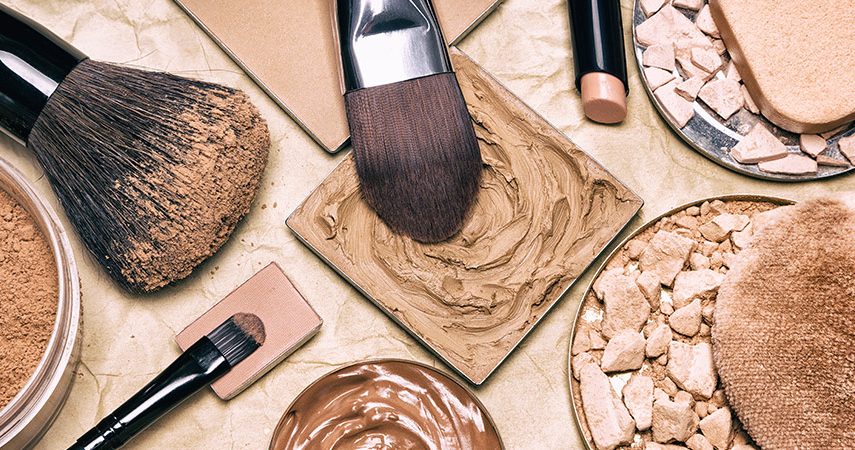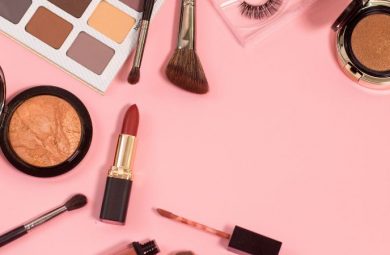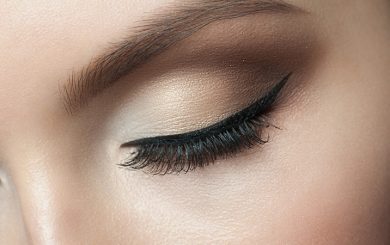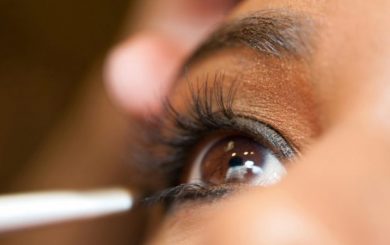Of all the makeup products out there, foundation is one of the trickiest to get right. Often times you can end up with a harsh line that clearly distinguishes the color of your face and your neck, which not only looks tacky but can be embarrassing for many. Sometimes you can take a photo and realize that you have a grey cast or are looking ashy because your foundation is too light. Sometimes, your oily skin will scream if you use the wrong product, your sensitive skin will flare up because the foundation is too heavy, and the dry skin will flake because of that super mattifying product. This guide will teach you how to choose the best foundation for your skin.
Why Wear Foundation?
The main function foundation serves is evening out the skin tone. Many people have blotchy, uneven skin on their face, and foundation helps to smooth everything out and make it flawless. It can make your pores look smaller, cover up any blemishes or scars you might have, and help disguise dark circles under the eyes.
A note on foundation and concealer: they aren’t the same thing. Concealer is a more concentrated pigment meant to cover up small imperfections. Foundation goes over the whole of your face.
What Type of Foundation Should I Wear?
There are several types of foundation you can get: powder, stick, liquid, or mousse. Which one will work best for you depends on your skin type.
Powder foundation is, as the name states, in powder form. It is best for oily skin, since it helps in reducing the shine and controlling the production of oil on your skin.
Liquid foundation is the most popular formula on the market, as it is versatile and can work with most skin types. You can choose the level of coverage with it, and go for sheer when you’re having a casual day, to full coverage when you want to be a movie star.
Stick foundation is very convenient for travel, as it is usually densely packed and won’t spill all over your clothes. It is perfect for people with drier and normal skin, as it will glide beautifully and provide good coverage.
Mousse foundation is still quite new on the market, but it is an interesting formula you can try, especially if you have oilier skin. The whipped texture will not feel heavy on the face and can help with breakouts.
What Type of Foundation Should I Choose?
Choosing the perfect foundation can seem like a daunting task, however, if you know what your skin type thrives with, you can use it as a guide when looking for that perfect product.
Oily/Acne Prone Skin
For oily or breakout-prone skin types, it can be tricky finding a foundation that won’t melt within the hour or make the breakouts worse. In this case it’s best to steer clear of liquid and stick foundations and opt for a powder formula instead. Most major cosmetic lines offer powder foundations that provide excellent coverage without the shine or that greasy feel. Some even contain salicylic acid to treat blemishes while concealing them.
Make sure to select oil free, non-comedogenic formulas, and be wary of mineral foundations, or products with illuminating, or brightening components, as these can potentially up the shine and make you look oily after a couple of hours. Cream foundations are usually not suitable for oily skin types, since they can get quite heavy and shiny, and clog the already clogged pores. If you prefer liquid foundation, make sure to choose a mattifying formula, but not a drying one. When applying, use tools such as beauty blenders and foundation brushes instead of your fingertips. If you believe in primers, use a mattifying one, and always have blotting papers with you to pick up the extra oil that gathers on your face.
Tip: On oiler skin types foundation may appear darker, so choose a foundation that is a shade lighter than your natural skin tone.
Dry Skin
Dry skin types usually require more of a moisture boost in a foundation to prevent dullness or flaking throughout the day. Cream foundations with added ceramides, antioxidants, vitamins, oils, and humectants are an ideal formula of foundation for dry skin types. Tinted moisturizers also offer a flawless application without a heavy makeup feel, and work to keep your skin hydrated throughout the day. People with dry skin who want some coverage can benefit from BB and CC creams as well. Make sure that you are maintaining a proper moisturizing routine and that you apply moisturizer before applying makeup. During the day, refresh your face with a moisturizing spray to keep the skin hydrated and avoid flaking.
Tip: Exfoliating and moisturizing your skin before applying foundation will result in a smoother application and longer lasting results. However, be careful not to over-exfoliate!
Sensitive Skin
Skin that is highly reactive to certain ingredients and environmental factors requires the simplest of foundation formulas, preferably organic, sheer, and light. Look for “hypo-allergenic” and “fragrance-free” on the label.
Mineral foundations soothe and even out sensitive complexions without irritating the skin or drawing attention to problematic areas. However, mineral foundations have a bad rep these days because many companies put questionable ingredients in them, so it is best to avoid them altogether if possible. Avoid any added colors, parabens, or overly harsh ingredients, and definitely use sunscreen every day. Sensitive skin will not benefit from heavy, full coverage foundations, heavy powders, or cream foundations, so it is best to use BB or CC creams formulated specifically for sensitive skin.
Tip: If you’re not sure whether a foundation will irritate your skin, ask for a sample first and try it for a week. High-end beauty retailers are generally happy to sample foundation products, rather than deal with potential returns at a later date.
Mature Skin
As we age our skin loses its natural elasticity and collagen, resulting in fine lines, wrinkles, and dullness of the skin tone. Cosmetics designed for younger skin can cake and settle into the creases on the face, highlighting rather than hiding them.
Much like dry skin, mature skin requires foundation formulas packed with moisturizing vitamins, as well as additional collagen boosters. Choose water-based liquid foundations and use only the lightest talc-free setting powders to finish. Sun protection is a plus, as prolonged exposure to sunlight has been shown to speed up the aging process, as well as increase the risk of cancer. Foundations that contain moisturizing agents such as hyaluronic acid will help with the hydration.
Tip: Mixing lighter and darker foundation shades can harden and soften certain lines for a more youthful appearance. For example, apply a foundation a shade darker than your natural skin tone to lift sagging areas, while using a lighter shade to soften and blur certain angles.
Related Search Topics (Ads)
Related Products
How to Choose the Best Foundation Shade
Finding the right foundation shade seems like a daunting task, however, it does not have to be so scary. There are several things you can do to find your perfect match.
Figure Out the Undertone
Apart from the actual color of your skin, which is pretty self-explanatory, undertones play a huge role in making your foundation match perfectly. Generally, there are three main undertones: neutral, warm, and cool. People with cool undertones tend to burn in the sun and are usually pink or blue. Warm undertones tan well and rarely burn, and are golden or red usually. Neutral undertone is a mix between cool and warm, and they sometimes burn in the sun. Foundations for cool undertones will usually be named something like porcelain, rose, or cocoa. Ones for warm undertones will probably have tan, golden, or caramel in the name, and those for neutral undertones will have nude, ivory, or buff written on them.
Do A Swatch Test
The best way to pick the right shade of foundation for your face is to test it on your chin line, from the cheek to your neck. You want the foundation to match both your neck and your face. Give it some time, since many foundations can oxidize and become darker after they are dry.
Perfect Light
Make sure to test in natural light to be sure you’ve got the right color to blend with your natural skin tone. If you are doing your swatch test in the store, get outside, far from the fluorescent light and see what the foundation looks like in the sun. If the shade is too light it can make you look ashy or grey, and if it’s too dark, it can make you look muddy.
Mind The Season
Keep in mind that your skin tends to change color throughout the year and you may need to change your foundation accordingly. In summer when your skin is darker, you will likely need a darker shade of foundation than you do in winter.
Learn To Customize
If you end up purchasing the wrong shade, know that you can adjust it at home. Whether it is by mixing it with a lighter or darker shade of another foundation, using concealer over it, or mixing it with a moisturizer – know that you have options and you should learn how to utilize them. The foundation can be darkened with bronzer or contouring, or lightened with a bright concealer.
Use An App
Nowadays, there are a lot of apps in the play store that can help you choose the right shade. Download a few of them and test them out. They will give you several options you can look for at the drugstore or Sephora and see if they are a match.
Personalize It
Some brands offer an option to customize and personalize your foundation based on your skin tone. Some of them have an app, and some of them have people at the makeup counter that will shade match you. You can then order your perfect blend and have your very own, personalized, one of a kind foundation.
Where to Buy Foundation
If you are completely new to buying foundation, the best place for you to go is to a makeup counter at a department store. When you buy foundation at a drugstore you typically can’t test the products out before buying them, meaning you run the risk of purchasing an item that won’t actually work for your skin. And unfortunately, most of the time you cannot return these products, so if they don’t work for you, you lose that money. However, drugstores are opening up to the demands of the market, and most of the brands will insist on having tester tubes you can use to swatch and find your perfect shade.
At a makeup counter at a department store, a makeup expert will be able to help you pick the right foundation and other makeup products, and you can test them out to see how you like them before you purchase them. Of course, makeup from a department store is going to be more expensive than what you can get from a drugstore, so if your budget is tight follow the guidelines above and you’ll find a good foundation in no time.
When purchasing online, you can’t really do a swatch test, however, if you know your undertone, know your skin shade, and know the type of foundation that works with your skin type, the chances of getting a bad product are slimmer. Look for reviews from influencers who have similar skin to yours, read reviews, and ask a friend who perhaps already has the product. Getting informed and knowing what you are looking for are prerequisites of a successful foundation match!





